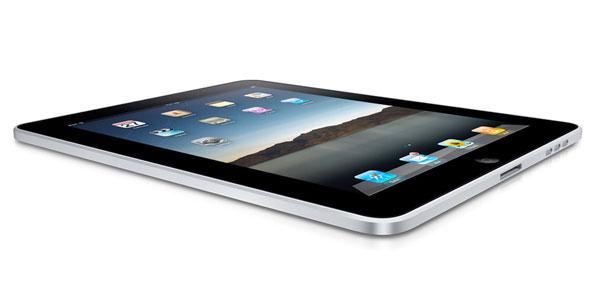Should Toddlers Use iPads?

NEW YORK — Digital devices are everywhere these days and a growing number of mobile applications are aimed at kids. The result: Parents may struggle with how long to let their children use them, if at all.
Digital media use in young children is common — computers, smartphones and tablet devices, along with video games, contribute to about a quarter of the time children ages zero to eight spend in front of screens, according to a 2011 report from Common Sense Media, a nonprofit organization that provides advice on media use in children. (The rest of their "screen time" is spent watching TV.) In addition, about 30 percent of parents say they have downloaded applications, or apps, on their mobile devices for their children to use.
Whether or not young children should use tablets, such as iPads or other digital media, is controversial. Some argue that young children should not be exposed to screens — the American Academy of Pediatrics recommends children younger than 2 spend as little time as possible in front of the TV or other screens. At this age, young children lack the mental ability to understand what they're watching, the AAP says. Others argue that children, even very young ones, can benefit from digital media, including certain educational iPad apps.
Tablets have not been around long enough for researchers to study whether or not children can really learn from them. And researchers warn that, just because a child can interact with an iPad, instead of passively watching it like a TV, doesn't mean a child can learn from it.
"Everyone thinks that because you interact with content, it's going to be OK," Rosemarie Truglio, senior vice president of education and research for Sesame Workshop, said last week at an event here at the Barnard Center for Toddler Development that discussed media use in children. "It's the content, not the medium," that makes the difference," Truglio said.
Despite the controversy, experts agree that moderation is key. Parents should be aware that any time spent in front of a screen is time a child could be spending interacting with the real world, according to Common Sense Media. Truglio recommends that children spent no more than 1.5 to 2 hours in front of any kind of screen each day.
If you let your child use applications on a tablet or smartphone, here are some tips.
Get the world’s most fascinating discoveries delivered straight to your inbox.
- Preview the application before you let your kid use it to make sure it is age-appropriate. Children younger than 2 should not use apps that try to teach letters, for instance, Truglio said. When you preview the app, think about whether or not your child would be able to interact with it properly. Because young children are still developing motor skills, avoid apps that require high levels of coordination to use, Common Sense Media says.
- Use the app together. Your child will get more benefit out of an app if you use it with him or her, Truglio said. It's important for young children to hear you talk and ask "open-ended" questions so they can develop language skills, Truglio said.
- If the app you're using is an interactive story book (eBook), read through the story with your child first without all the bells and whistles (hot spots) that make sound and movement. (Some apps allow you to turn these off.) Turning off hot spots the first time will allow you to get through the story once, Truglio said.
- Try not to make app use part of a routine. For example, refrain from always giving your child the iPad in the car. If app use becomes a habit, it may end up being a hard one to break, Common Sense Media says.
Pass it on: If you let children use a digital device, play with them, and limit the amount of time they use it.
This story was provided by MyHealthNewsDaily, a sister site to LiveScience. Follow Rachael Rettner on Twitter @RachaelRettner, or MyHealthNewsDaily @MyHealth_MHND. We're also on Facebook & Google+.

Rachael is a Live Science contributor, and was a former channel editor and senior writer for Live Science between 2010 and 2022. She has a master's degree in journalism from New York University's Science, Health and Environmental Reporting Program. She also holds a B.S. in molecular biology and an M.S. in biology from the University of California, San Diego. Her work has appeared in Scienceline, The Washington Post and Scientific American.
 Live Science Plus
Live Science Plus





